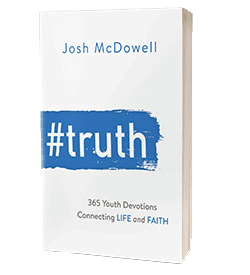I don’t particularly enjoy talking about how religions have distorted truths. Many others don’t enjoy hearing about it, either. Most of us avoid conflict, and I’m one of them.
However, sometimes conflict is necessary and beneficial when it involves issues that we cannot afford to get wrong. As you will soon see, religious truth is one such issue. That is why we need to discuss two of the most common ways we observe distortion in religious truth today.
First Distortion: Getting right with God is a matter of behavior modification
No matter where in the world you go, many people think that getting right with God, getting on God’s “good side,” getting God to let you into Heaven (or whatever else people call it) is a matter of cleaning yourself up and fixing bad behavior. The Bible has much to say about proper living, but its teachings are often distorted when people think proper living is done for the purpose of getting right with God. If we believe this, we fail to understand how to establish a proper relationship with God. Consider these words from Paul in Galatians 3:1–2 (NLT): Oh, foolish Galatians! Who has cast an evil spell on you? For the meaning of Jesus Christ’s death was made as clear to you as if you had seen a picture of his death on the cross. Let me ask you this one question: Did you receive the Holy Spirit by obeying the law of Moses? Of course not! You received the Spirit because you believed the message you heard about Christ. This is some of the strongest language we ever see from Paul in the Bible. He is reacting against people who believe they can earn a better standing with God through their own human effort. In response, Paul strongly reminds the Galatians that it is God who saves and establishes a relationship with us. Jesus died on the cross for our sins, and God’s Spirit enters our lives when we believe in the Gospel.Related content: Faulty Truth False RealityOften, this distortion trickles into Gospel conversations when Christians are not careful how they talk about sin. Many people think that sin is like extra calories. That is, you probably shouldn’t have eaten it, but it won’t kill you. Just jump on a treadmill and work it off with enough good deeds to counteract the bad… No. Sin is poison. No treadmill cures us of poison. That is why we must trust in the saving power of Jesus to make us right with God. It’s nothing we can accomplish on our own. Jesus accomplished everything for us. (Thank God for that!)
Second Distortion: The More Mystical Something Sounds, the More Spiritual it Must Be
Over the years, I have read a handful of spiritual and New Age books and heard various teachings from people in those spiritual communities. Almost always, the teachers make bold claims about reality and spiritual truths without a shred of justification. I’m talking about statements such as, “pain is an illusion,” “all religions point to the same primordial source,” “you are one with the universe,” or “you must liberate your consciousness from thought forms to achieve enlightenment.” At first glance, I find it odd that spiritual teachers simply say this stuff, and thousands of spiritually hungry listeners eat it up without a moment’s thought to consider any evidence for such bold statements. Upon reflection, however, I find that statements like these have a peculiar draw to them. We are, after all, spiritual beings, and something about those statements seems spiritual. I suspect they seem spiritual because they sound so counterintuitive or otherworldly. They speak of reality in a new, adventurous way. They trigger deep, reflective, existential thought, and something about that seems right. It’s as if the more mystical something sounds, the more spiritual it must be.Related content: Seven Lies that Distort the GospelThis is another distorted religious truth. Spirituality is not measured by how deep one goes into the rabbit hole of Eastern mysticism or New Age thinking. True spirituality is a matter of one’s relationship with God through His Holy Spirit, who inhabits his church and lives inside those saved by Jesus (Titus 3:5–6; 1 Cor. 12:13). It’s gloriously simple, and as we share elsewhere on this website, there is plenty of good reason to believe it’s true.
Challenging the Distortions
We have seen two common distortions of religious truth. The first tends to be more common among Western religions, and the second among Eastern religions. I wrote this way to illustrate that religious confusion occurs everywhere. As Christians, we need to remember that the word “Gospel” means “good news,” and that’s exactly what it is. This means that properly understood, the Gospel is exactly what people want and need. So, any time someone rejects the Gospel, it’s the result of religious distortion of some sort. Something is confusing others into thinking that the pure Gospel of Jesus is not worth accepting. We have the opportunity to clear away that confusion so people can see and understand the Gospel clearly. However, if we are to make headway in our conversations, we need to understand the confusion people are dealing with. That is why, whenever I hear someone say they aren’t a Christian, I like to ask a simple question: “Why not?” Consider someone in your life to whom you could ask that question. Listen, and then gently look for ways to challenge the distortion and encourage them to consider Jesus. For “In him was life, and the life was the light of men” (John 1:4, ESV).



